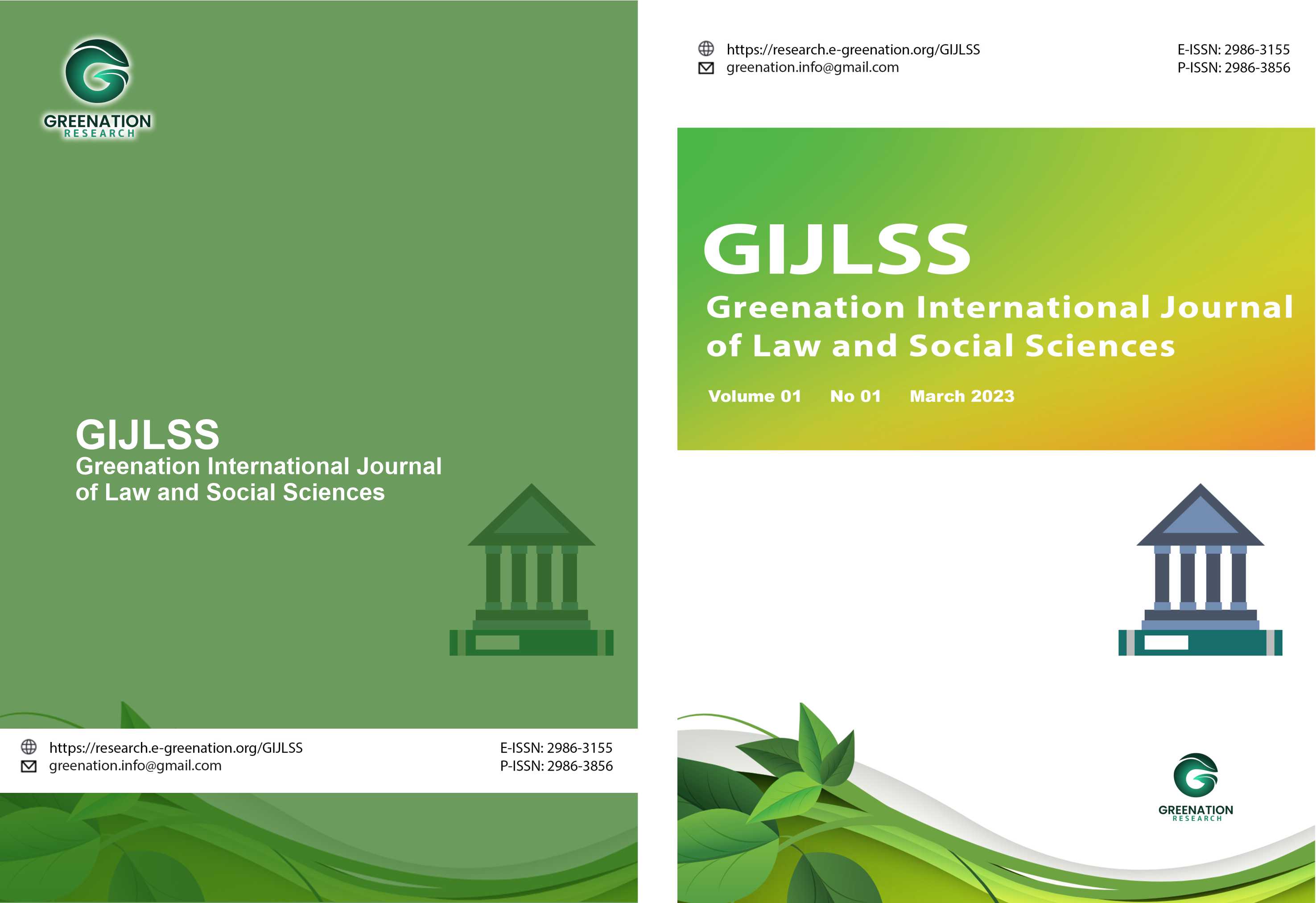Criminal Liability of Individuals and Third Parties in Crypto-Asset-Based Fraud Schemes: A Dormant Responsibility Perspective
DOI:
https://doi.org/10.38035/gijlss.v3i3.596Keywords:
Criminal Liability, Crypto Assets, Fraud, Third Parties, Dormant ResponsibilityAbstract
The rapid growth of crypto assets in Indonesia has opened up economic opportunities while simultaneously raising the risk of fraudulent activities, such as rug pulls, fake investment offers, and market manipulation, which are detrimental to the public. This study analyzes the criminal liability of individuals and third parties in crypto-based fraud, emphasizing the concept of dormant responsibility, which is criminal liability arising from the negligence or passivity of parties who should have prevented the crime. The method used is normative juridical with a conceptual and legislative approach, examining the Criminal Code, Law Number 1 of 2024 concerning ITE, Law Number 8 of 2010 concerning the Prevention and Eradication of Money Laundering Crimes, as well as regulations on the crypto asset sector under the supervision of the OJK through POJK Number 27 of 2024. The results of the study indicate that individual perpetrators can be held accountable based on the fraud provisions in the Criminal Code and Article 28 paragraph (1) of the ITE Law, while third parties, such as crypto exchanges, smart contract developers, and custodian service providers, are potentially liable if proven negligent in their supervisory obligations, KYC/AML, or prevention of suspicious transactions. The concept of Dormant Responsibility offers a new normative framework that places active and passive negligence as important elements to close legal loopholes, while balancing consumer protection with technological innovation. Research recommendations include strengthening preventive obligations on crypto service providers, harmonizing criminal regulations with digital financial regulations, and developing technical guidelines for proving crypto assets in court.
References
Amrullah, M. A. (2024). Inovasi Digital Dalam Bentuk Aset Kripto Sebagai Sarana Untuk Melakukan Tindak Pidana Pencucian Uang. MLJ Merdeka Law Journal, 5(2), 113–125.
Azizul, A. V. (2025). Analisis Faktor Minat Mahasiswa Generasi Z Kepulauan Bangka Belitung Dalam Melakukan Investasi. Jurnal Multidisiplin Ilmu Akademik, 2(3), 282–294.
Chic, S. A. (2024). Tantangan Dan Peluang Blockchain Di Era Digital Dalam Bidang Keamanan Data Dan Transaksi Digital. Journal of Comprehensive Science (JCS), 3(11).
Dachi, F. N. (2024). Tanggung Jawab Perdata Dalam Transaksi Crypto Asset: Kajian Terhadap Risiko Kerugian Investor. Jurnal Riset Rumpun Ilmu Sosial, Politik Dan Humaniora, 3(2), 69–79.
Dharma, P. C. (2024). Perlindungan Hukum Terhadap Investor Dalam Transaksi Koin Digital Crypto. Jurnal Konstruksi Hukum, 5(1), 117–122.
Hartono, S., & Budiarsih, R. (2022). Potensi Kesuksesan Penerapan Pajak Penghasilan Terhadap Transaksi Aset Kripto Di Indonesia. Jurnal Pajak Dan Keuangan Negara (PKN), 4(1), 132–146. https://doi.org/10.31092/jpkn.v4i1.1740
Hasan, Z. W. (2024). Regulasi Penggunaan Teknologi Blockchain Dan Mata Uang Kripto Sebagai Tantangan Di Masa Depan Dalam Hukum Siber. Birokrasi: Jurnal Ilmu Hukum Dan Tata Negara, 2(2), 55–69.
Kila, F. S. (2023). Pertanggungjawaban Pidana Tanpa Sifat Melawan Hukum Dalam Perspektif Pembaharuan Hukum Pidana. Jurnal Konstruksi Hukum, 4(1), 28–34.
Mansur, M. (2023). Regulasi Cryptocurrency Dan Hak Asasi Manusia. El-Faqih: Jurnal Pemikiran Dan Hukum Islam, 9(2), 177–198.
Michel, S., & Defiebre-Muller, R. (2024). When Meta-Organizations Fall Asleep: The Dormancy Process. Scandinavian Journal of Management, 41(1), 101391.
Murti, T. W. (2024). Analisa Kebijakan Hukum Terhadap Kasus Koin Kripto Sebagai Bukti Elektronik Tindak Kejahatan Pencucian Uang. Media Hukum Indonesia (MHI), 2(2).
Ningsih, N. H. (2025). Hukum Ekonomi Digital: Regulasi Bisnis Di Era Teknologi. Jambi: PT. Nawala Gama Education.
Nuryanto, U. W., & Pramudianto, P. (2021, October). Revolusi Digital & Dinamika Perkembangan Cryptocurrency Ditinjau Dari Perspektif Literatur Review. In National Conference on Applied Business, Education, & Technology (NCABET) (Vol. 1, No. 1, pp. 264–291).
Rinaldi, F. A., & Wijaya, B. K. (2025). Efektivitas Penegakan Hukum Terhadap Tindak Pidana Perbankan: Studi Kasus Pembobolan Dana Nasabah. PENG: Jurnal Ekonomi Dan Manajemen, 2(2), 3437–3447.
Rohman, M. N. (2021). Tinjauan Yuridis Normatif Terhadap Regulasi Mata Uang Kripto (Crypto Currency) Di Indonesia. Jurnal Supremasi, 1–10.
Rolando, B., Al-Amin, A. A., Rahmat, R., Zuwardi, Z., & Izmuddin, I. (2024). Memahami Nilai Tukar Kripto Dalam Ekonomi Digital: Pendekatan Investasi Di Masa Kini. COSMOS: Jurnal Ilmu Pendidikan, Ekonomi Dan Teknologi, 1(6), 560–571.
Siahaan, A. L. (2025). Tanggung Jawab Emiten Terhadap Investor Dalam Kasus Manipulasi Pasar Modal. PESHUM: Jurnal Pendidikan, Sosial Dan Humaniora, 4(4), 5990–5995.
Tambunan, D. (2022). Waspada Investasi Ilegal Di Indonesia. Jurnal Perspektif, 20(1), 108–114.
Tirtawati, S. D. (2021). Urgensi Pengaturan Mengenai Pertanggungjawaban Pidana Korporasi Dalam Hukum Pidana Di Indonesia. Gorontalo Law Review, 4(1), 112–124.
Umar, M. F. (2024). Penggunaan Mata Uang Digital Sebagai Sarana Transaksi Dalam Perspektif Hukum Di Indonesia. Lex Privatum, 14(3).
Utama, R. A. (2025). Perlindungan Hukum Terhadap Konsumen Dalam Perdagangan Aset Kripto Di Bawah Pengawasan Otoritas Jasa Keuangan (OJK). Journal of Science and Social Research, 8(3), 4000–4008.
Utoyo, M. A. (2020). Sengaja Dan Tidak Sengaja Dalam Hukum Pidana Indonesia. Lex Librum, 7(1), 75–85.
Zhou, Y., Sun, J., Ma, F., Chen, Y., Yan, Z., & Jiang, Y. (2024, April). Stop Pulling My Rug: Exposing Rug Pull Risks In Crypto Token To Investors. In Proceedings Of The 46th International Conference On Software Engineering: Software Engineering In Practice, 228–239.
Downloads
Published
How to Cite
Issue
Section
License
Copyright (c) 2025 Herwansi Tambunan, Megawati Barthos

This work is licensed under a Creative Commons Attribution 4.0 International License.
Copyright :
Authors who publish their manuscripts in this journal agree to the following conditions:
- Copyright in each article belongs to the author.
- The author acknowledges that the Greenation International Journal of Law and Social Sciences (GIJLSS) has the right to be the first to publish under a Creative Commons Attribution 4.0 International license (Attribution 4.0 International CC BY 4.0).
- Authors can submit articles separately, arrange the non-exclusive distribution of manuscripts that have been published in this journal to other versions (for example, sent to the author's institutional repository, publication in a book, etc.), by acknowledging that the manuscript has been published for the first time at GIJLSS.























